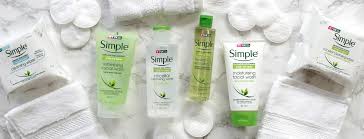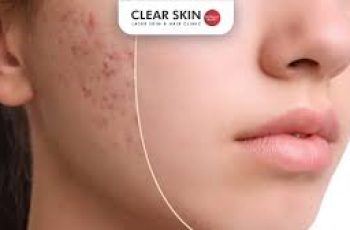
Which Type of Face Wash Is Best for You?
Washing your face is one of the most fundamental steps in any skincare routine. For many, it’s the first step in the morning—a moment that signals the start of a fresh new day.
It’s not just about cleansing. The right face wash preps your skin, making sure the next products—like toners, serums, or moisturizers—work more effectively.
But here’s the catch: using the wrong type can do more harm than good.
Different skin types have different needs. Knowing yours can help you choose a product that works with your skin, not against it. But don’t worry—it’s simpler than it sounds.
In this guide, we’ll help you discover which face wash is best for your skin type and how to get the most from it.
Why Use a Face Wash?
Face wash serves as your skin’s first defense against daily damage. It removes surface-level debris and deeper grime, keeping your skin clean and fresh.
Throughout the day, your skin collects a mix of harmful elements. These include:
Pollution, Excess oil, Dead skin cells, Sweat, Dirt, Makeup residue, Bacteria
These impurities can clog pores, trigger breakouts, and contribute to signs of premature aging. Over time, they create a dull, tired-looking complexion.
While face washes are excellent at cleaning the skin, they’re not usually meant to remove heavy makeup. So, always remove makeup before washing your face.
Think of makeup removal and face washing as a two-step process. First, use a makeup remover or micellar water. Then follow up with your cleanser.
How Often Should You Wash Your Face?
This is a topic where skincare experts are divided. Some say once a day is enough, ideally in the evening. Others recommend cleansing both morning and night.
Here’s a helpful breakdown:
Evening Cleansing is essential to remove the day’s buildup of dirt and environmental stressors.
Morning Cleansing can refresh the skin and remove any oil or sweat that accumulated overnight.
If your skin tends to be oily or you work out in the morning, washing your face after can be beneficial. For dry or sensitive skin, once daily may be enough.
Ultimately, your lifestyle, skin type, and the climate you live in all play a role in what works best for you.
Is Face Wash Really Necessary?
Yes—absolutely. Simply splashing your face with water isn’t enough to remove grime, oil, and dead skin cells that accumulate over time.
Our skin naturally goes through a renewal cycle every 28 to 30 days. But if this process is disrupted, dead cells build up. This can block pores and dull your complexion.
Without proper cleansing, your skincare products can’t penetrate as deeply. That means your expensive serums and moisturizers won’t work as well.
By using the right face wash, you clear the way for better skin health and improve the performance of your entire skincare routine.
How to Choose the Best Face Wash for Your Skin Type
Now that you know why face washing is essential, the next step is finding the right one for your skin type. Here’s a quick guide to help you match ingredients and textures to your unique skin.
1. Dull or Tired-Looking Skin
If your skin often looks gray, lacks glow, or feels rough, you may be dealing with dull skin.
What to look for:
AHAs like glycolic acid to gently exfoliate and remove dead skin cells
Vitamin C to brighten the skin and even out tone
Fruit enzymes for gentle resurfacing
Best textures:
Gel cleansers, Lotion or cream-based washes, Cleansing milks
Extra tips:
Use morning and night, followed by a brightening serum.
Regular exfoliation will remove barriers to allow deeper product absorption.
2. Dry or Dehydrated Skin
Dry skin can feel tight, itchy, or flaky. The wrong cleanser can make these symptoms worse.
What to look for:
Lactic acid, a mild exfoliator that hydrates as it removes dry skin
Hyaluronic acid to attract moisture
Ceramides and nourishing oils for barrier support
Best textures:
Cream cleansers, Cleansing balms or milks, Non-foaming, hydrating formulas
Extra tips:
Avoid harsh foaming cleansers.
Stick to nighttime use or use a splash of water in the morning instead.
Always moisturize immediately after cleansing.
3. Oily or Acne-Prone Skin
Oily skin is prone to shine, enlarged pores, and breakouts. The key is to manage oil without stripping your skin dry.
What to look for:
Salicylic acid (BHA) to penetrate and clear clogged pores
Niacinamide to regulate oil production
Tea tree oil for its antibacterial properties
Best textures:
Foaming or gel cleansers, Oil-free and non-comedogenic formulas
Extra tips:
Use no more than twice a day.
Over-cleansing can trigger excess oil production.
Use a lightweight moisturizer after to maintain balance.
4. Combination Skin
Combination skin features both oily and dry areas—usually an oily T-zone and drier cheeks.
What to look for:
Balancing ingredients like green tea, witch hazel, or panthenol
Mild AHAs or BHAs in small amounts
Hydrating ingredients like glycerin
Best textures:
Gel or light foaming cleansers
Gentle exfoliating cleansers used 2-3 times a week
Extra tips:
Avoid over-treating any one area.
Use a multi-masking approach if needed with targeted care for oily vs. dry zones.
5. Sensitive or Reactive Skin
Sensitive skin gets irritated easily, often showing redness, burning, or itching.
What to look for:
Chamomile, aloe vera, and calendula for soothing properties
Fragrance-free and alcohol-free formulas
Micellar water or very mild cream cleansers
Best textures:
Cream or milk cleansers
Gel cleansers labeled “for sensitive skin”
Extra tips:
Avoid scrubbing or hot water.
Pat your skin dry with a soft towel.
Do a patch test before using a new product.
How Much Should You Spend on a Face Wash?
Price doesn’t always reflect performance. Whether it costs £6 or £60, the best face wash is the one that works for your skin.
There are great options at every price point. Focus on ingredients and formula over brand prestige. If a lower-cost product works for you—stick with it!
What Happens If You Use the Wrong Face Wash?
If your skin feels tight, itchy, or excessively dry after cleansing, the wash may be too harsh.
Likewise, if your skin is producing more oil or breaking out more, you may be using something too drying or irritating.
These signs are mild and reversible. Just switch to a gentler product more suited to your skin type.
However, if you experience more severe symptoms like redness, itching, rashes, or blistering, stop use immediately. Contact a GP or dermatologist if the irritation persists.
Conclusion: Your Ideal Face Wash Is Out There
Face wash is a small but essential part of your skincare routine. Getting it right sets the stage for every other product to do its job.
Start by understanding your skin type. Then match it with ingredients and textures that nourish, cleanse, and protect.
Whether your budget is small or luxurious, there’s a face wash that fits your routine and delivers results. Listen to your skin—it tells you everything you need to know.
Want to learn more? Check out our post on AHAs and BHAs to understand how they work and which ones are right for your skin.
And remember—clean skin is happy skin. Treat it kindly, and it will thank you with a radiant, healthy glow.


